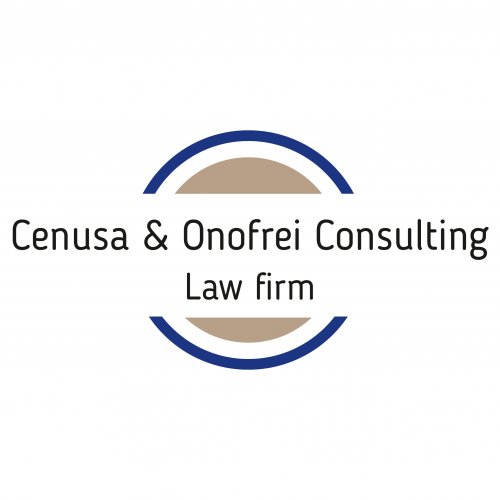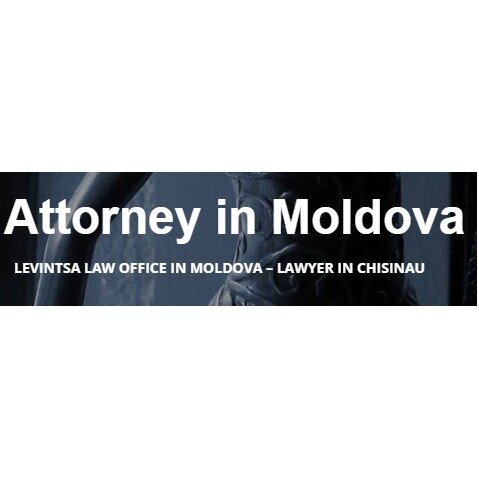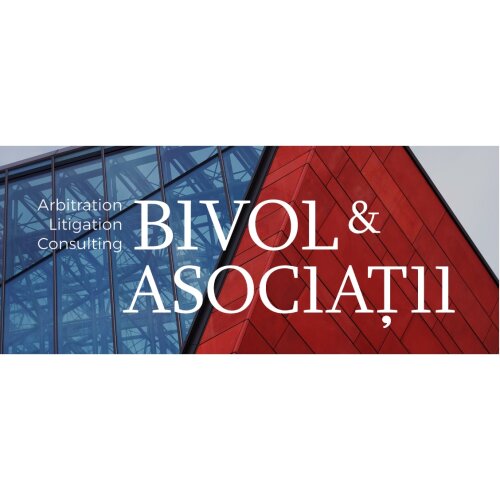Best Nonprofit & Charitable Organizations Lawyers in Republic of Moldova
Share your needs with us, get contacted by law firms.
Free. Takes 2 min.
Or refine your search by selecting a city:
List of the best lawyers in Republic of Moldova
About Nonprofit & Charitable Organizations Law in Republic of Moldova
Nonprofit and charitable organizations in the Republic of Moldova serve crucial roles in promoting social good, supporting community initiatives, and providing various forms of aid. These organizations operate under specific legal frameworks that define their formation, operation, governance, and dissolution. Moldovan law seeks to ensure transparency, accountability, and good governance within these entities, recognizing their essential contributions to society. Understanding the legal landscape is vital for anyone involved in managing or establishing nonprofits in Moldova.
Why You May Need a Lawyer
Engaging with legal professionals can be invaluable for individuals and organizations involved in the nonprofit sector in Moldova. Common situations where legal assistance may be necessary include:
- Establishing a new nonprofit entity and navigating the registration process.
- Ensuring compliance with local laws, including financial reporting and tax obligations.
- Restructuring or merging with other entities.
- Advising on governance structures and member or board relationships.
- Resolving internal disputes or external challenges.
- Handling donations, grants, and funding agreements legally and ethically.
Local Laws Overview
Nonprofit and charitable organizations in Moldova are governed by a combination of laws and regulations that define their scope and operations. Key aspects include:
- Registration and Formation: Organizations must register with relevant governmental bodies to gain legal status, often involving drafting bylaws and articles of incorporation.
- Governance: Clear governance structures are required, detailing the roles and responsibilities of board members and officers.
- Financial Management: Nonprofits must adhere to transparent accounting practices and regular financial disclosures.
- Taxation: Certain tax exemptions may be available, but organizations must adhere to strict criteria and reporting standards.
- Donations and Funding: Regulations surrounding foreign and domestic donations aim to ensure these are used as intended without undue influence.
Frequently Asked Questions
What is the process to register a nonprofit organization in Moldova?
The registration involves submitting necessary documents such as bylaws, founders' information, and the purpose of the organization to the Public Services Agency of Moldova.
Are there any tax benefits for nonprofits in Moldova?
Yes, nonprofits may qualify for certain tax exemptions but must meet specific conditions and comply with reporting and operational guidelines outlined in the tax laws.
How does governance work within Moldovan nonprofits?
Governance typically involves a board of directors or trustees responsible for strategic decisions, ensuring legal compliance, and managing resources effectively.
Can a foreign national establish a nonprofit in Moldova?
Yes, foreign nationals can establish nonprofit organizations, subject to Moldovan laws regarding foreign involvement and cross-border transactions.
What restrictions are there on funding sources for Moldovan nonprofits?
Nonprofits can receive funding from various sources but must ensure compliance with laws on foreign donations and transparency in financial reporting.
How are internal conflicts managed within a nonprofit organization?
Internal disputes are typically managed by referring to the organization's bylaws, which should outline conflict resolution mechanisms. Legal intervention may be sought if necessary.
What are the reporting requirements for Moldovan nonprofits?
Organizations must regularly submit financial reports and activity statements to the relevant government authorities to maintain transparency and accountability.
Can nonprofits engage in commercial activities?
Yes, provided that the commercial activities are related to their primary purpose and any profits are reinvested into the nonprofit's mission-driven activities.
Is it necessary to appoint a lawyer for compliance matters?
While not mandatory, appointing a lawyer or legal advisor is recommended to ensure compliance with complex local laws and to mitigate potential risks.
What should one do in case of legal disputes involving nonprofits?
Engage a legal professional experienced in nonprofit law to navigate the dispute resolution process efficiently and resolve issues in compliance with the law.
Additional Resources
For further assistance, consider reaching out to the following resources:
- Public Services Agency of Moldova: The primary agency for registration and oversight of nonprofit organizations.
- Ministry of Justice: Provides guidance on compliance with legal frameworks.
- Local legal firms: Many offer specialized services in nonprofit law and can provide tailored advice.
- Civic Associations and Networks: Organizations such as the Contact Center or the National NGO Council offer valuable support and resources.
Next Steps
If you need legal assistance in the field of Nonprofit & Charitable Organizations, consider the following steps:
- Identify your specific needs and areas where legal guidance is required.
- Research and consult with legal professionals who specialize in nonprofit law in Moldova.
- Prepare relevant documentation and background information before consultations to facilitate productive discussions.
- Consider ongoing legal support to ensure continuous compliance and proactive risk management.
Lawzana helps you find the best lawyers and law firms in Republic of Moldova through a curated and pre-screened list of qualified legal professionals. Our platform offers rankings and detailed profiles of attorneys and law firms, allowing you to compare based on practice areas, including Nonprofit & Charitable Organizations, experience, and client feedback.
Each profile includes a description of the firm's areas of practice, client reviews, team members and partners, year of establishment, spoken languages, office locations, contact information, social media presence, and any published articles or resources. Most firms on our platform speak English and are experienced in both local and international legal matters.
Get a quote from top-rated law firms in Republic of Moldova — quickly, securely, and without unnecessary hassle.
Disclaimer:
The information provided on this page is for general informational purposes only and does not constitute legal advice. While we strive to ensure the accuracy and relevance of the content, legal information may change over time, and interpretations of the law can vary. You should always consult with a qualified legal professional for advice specific to your situation.
We disclaim all liability for actions taken or not taken based on the content of this page. If you believe any information is incorrect or outdated, please contact us, and we will review and update it where appropriate.
Browse nonprofit & charitable organizations law firms by city in Republic of Moldova
Refine your search by selecting a city.















